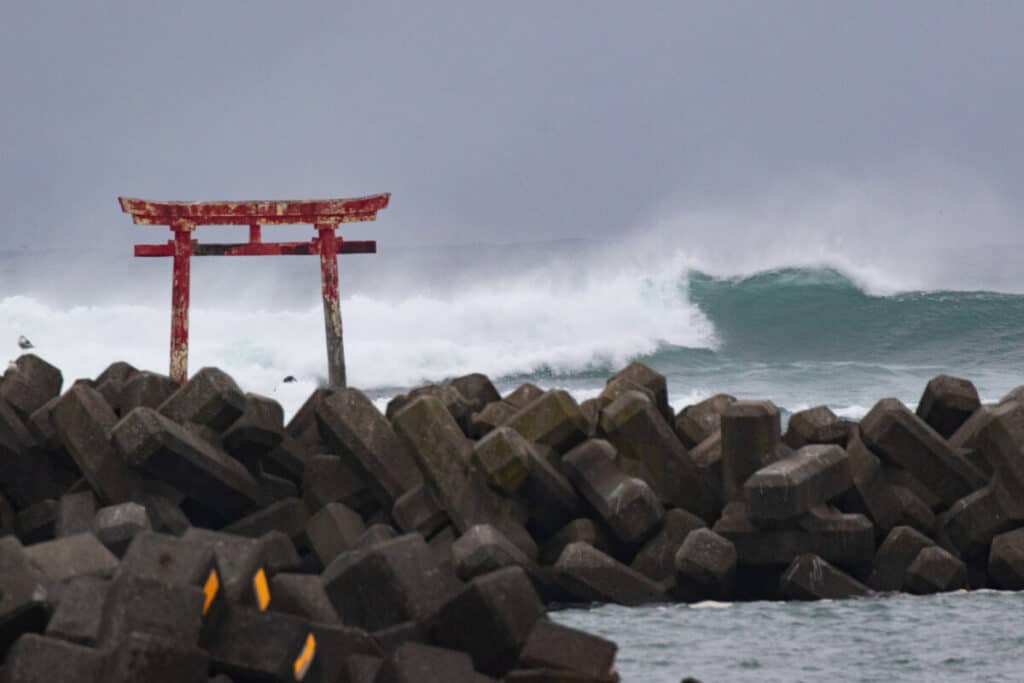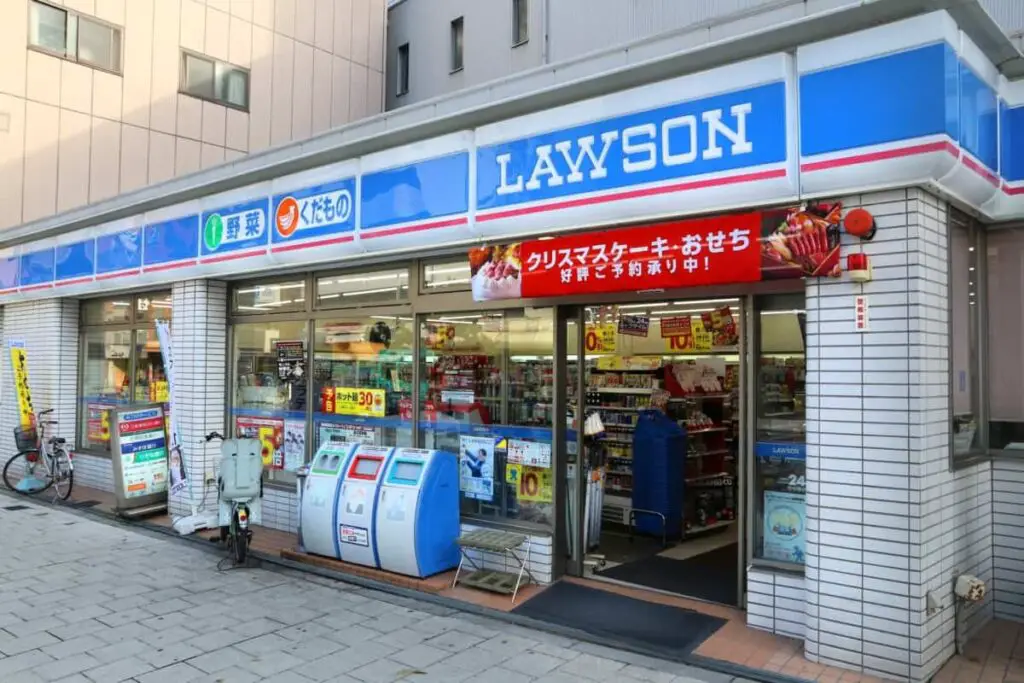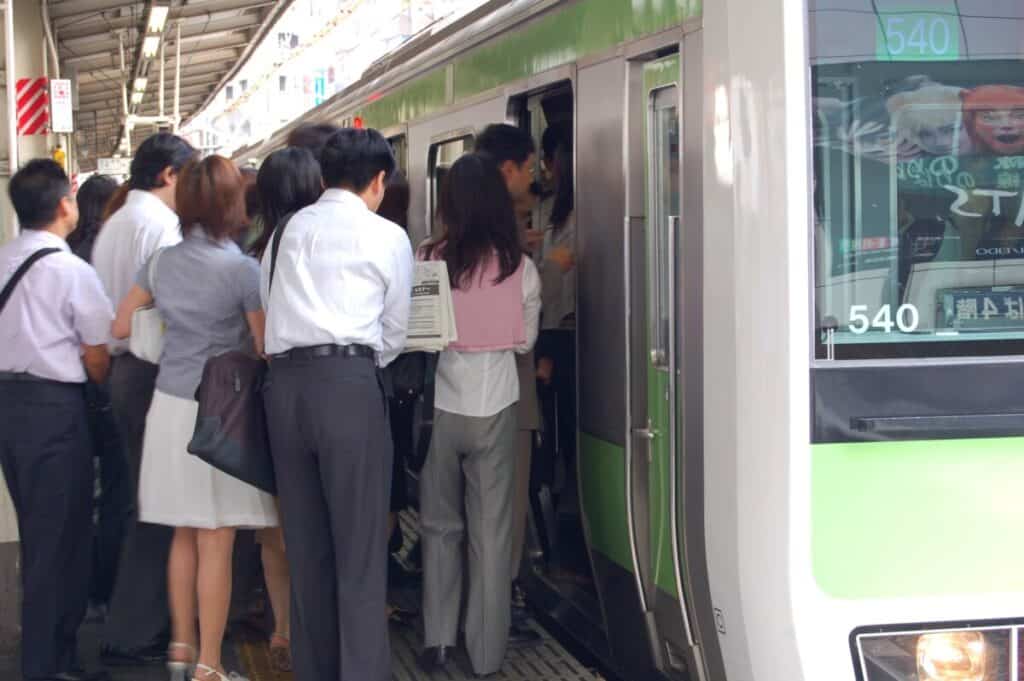Even though foreign residents of Japan come from all over the world and from all walks of life, a few Japanese cultural factors might make it difficult for foreigners to adapt and live in Japan. Finding services, finding a job, and simple daily life are all factors that might make being a foreigner in Japan more challenging.
Continue reading to learn more about the challenges you can experience as a foreigner in Japan.
Ideas on how to make living in Japan simpler for you, and answers to any concerns you might have regarding what makes life in Japan challenging for foreigners.

Check Out Our Article On The Daily Cost Of Living In Japan
The Main Fears and Doubts Foreigners Face Before Moving to Japan
Many anxieties and doubts may confuse one’s thoughts while considering relocating to Japan as a foreigner. You can be worried about the language barrier, finding jobs, gender discrimination in the workplace, adapting to the work culture, earthquakes, and establishing a social life.
Do not fear as you are by far not the first foreigner to relocate to Japan for work.
Although these things can all seem daunting, with a bit of time, these anxieties will seem so small when you’ve adapted to Japanese life.

Concerns About the Language Barrier in Japan
It only takes patience and an awareness of body language to go through a foreign country when you don’t speak the native language.
For added assistance, download essential apps like Google Maps and Google Translate, and simply pay attention to what is going on around you.
Sure, language limitations might be challenging to overcome, but don’t let that stop you from exploring new countries and endless possibilties.

Concerns Regarding Job Searching in Japan
In Japan, there are plenty of work opportunities. In reality, Japan’s immigration population is at an all-time high. The Japanese government has even devised a work visa that permits some nations’ blue-collar employees to work in Japan.
Many foreigners residing in Japan face difficulties due to their weak Japanese language skills. Your Japanese may be at or above a basic level.

However, unless you are fluent in Japanese, one of your few options is to teach English, which makes sense.
In general, opportunities for foreigners can be more challenging to find. If you decide to live in Japan as a foreigner, you should learn as much Japanese as possible to maximize your possibilities and ability to expand beyond teaching.
Concerns Regarding Earthquakes When Living in Japan
Many foreigners who consider moving to Japan find themselves worried about getting caught in an earthquake. However, there is no need to fear earthquakes when living in Japan. Japan’s buildings are structurally built to withstand some of even the worst quakes.
If you find yourself caught in the rare event of an earthquake while living in Japan, seek shelter under something sturdy. Stay calm and follow the building’s emergency procedures if out and about.
Does One Need to Worry About Any Other Forms of Natural Disasters in Japan Besides Earthquakes?
Typhoons and tsunamis are two other natural calamities to be prepared for when moving to Japan. A piercing siren will play in the unusual case of a tsunami or typhoon, signaling that it is time to act.
If a natural disaster is approaching, you may be required to evacuate the workplace or apartment complexes, therefore learning where your evacuation sites are. Schools are common evacuation sites in Japan. It’s always wise to be prepared with an emergency backpack.
Pack some basics that you can take with you at any time. It may appear extravagant, but keep in mind that you are in Japan and it’s best to be prepared in case of an emergency.

What Are the Most Common Questions Foreigners Ask When Moving to Japan?
Will A Foreigner Ever Really Be Accepted in Japanese Society?
Many foreigners residing in Japan sometimes have a sense of being an outsider.
Even if they are fully assimilated, married with children, have a job, a vehicle, and speak fluent Japanese, they may be turned down for an apartment because they are foreigners.
Some foreigners in Japan may feel lonely, unhappy, and discriminated against due to this. It is commonly assumed that the Japanese treat outsiders differently because they are afraid or concerned about the language barrier.
However, whatever the cause, this might be something you encounter. The best thing to do if you move to Japan is to ignore the sense of being an outsider and realize that each Japanese person is different and you will experience many personality types in Japan.

What is The Oddest Cultural Behaviour that a Foreigner Must Become Accustomed to in Japan?
Chatting on the train in Japan is considered appropriate as long as it is between two or more people riding the rail. However, talking on your phone when riding the train in Japan is deemed to be rude and disrespectful.
First, by chatting too loudly, you may annoy other passengers.
Whatever the case may be, don’t chat on your phone on the train unless it’s an emergency. Otherwise, you may receive some strange stares and unhappy people around you.
Do Foreigners Have Difficulty Finding Services in Japan?
Finding proper services is one of many circumstances that foreigners living in Japan find painfully challenging. Let’s say you are sick or injured and need to go to the doctor. You’ll have a hard time finding nearby clinics or hospitals.
On Google, you can discover some information, but it may lack details as to the type of clinic or doctor’s office. Most of the translations are in Japanese, so you may try to go to a specialty clinic that exclusively deals with a specific problem that need help with.
The ability to locate services in Japan is greatly aided by learning the language or having a friend who can interpret.

How Do I Make Sure That all of My Official Japanese Paperwork is in Order?
The fact is that if you live in Japan as a foreigner, you’ll have to get used to paperwork. Of course, you must fill out paperwork in your home country, but the scale is unrivaled in Japan.
Assume you wish to buy an automobile as a foreigner. Regrettably, it isn’t as simple as picking a car signing a single document, and driving it home.

When buying something like a car, you may be required to go to the police station and provide your inkan stamp so that they may inspect your parking area and ensure and make sure all paperwork is accurate.
You’ll also need to get a parking place in larger cities from your landlord and complete a slew of other paperwork.
Where Can a Foreigner Purchase the Best Snacks in Japan?
You may have a lot of fun examining the products on the shelf at your neighborhood supermarket or convenience store. However, there may come the point when you miss the favorite foods from home, particularly your junk foods. Except for the salty flavor, it’s uncommon to discover potato chip varieties you may be familiar with.
Plus, if you don’t read Japanese, you’ll be surprised if you pick up a strangely-tasting food without realizing it.

There is a myriad of delicious snacks in Japan and some not-so-delicious flavors. Shrimp-flavored chips and crab-flavored ice cream are on the menu. Although crab-flavored ice cream is unusual, it does exist.
More familiar foods from home can also be found at international supermarkets and Costco. To find these options, you only need to conduct a local search.
Are the Trains in Japan Jam-Packed?
Going to Tokyo early in the morning or during rush hour can be like being trapped in a can of sardines. For the majority of Rush hour, people are crammed onto each railway car.
Passengers frequently feel little improper pushing up against one another on all sides, which may make you hot and unpleasant at times.

People are frequently pushed in too far, which can cause frustration and fury even among the ordinarily placid Japanese person.
Trains in Japan are usually on schedule, which is fantastic if you don’t want to be late for anything. However, it is typically due to an issue on the tracks or some other human-caused accident when they are late.
What Should a Foreigner Do If They Get Sick in Japan?
Even if you have a fever, your employer expects you to go to the doctor the same day you take off work in Japan, which seems contradictory. When this happens to a foreigner in Japan for the first time, the foreigner can become perplexed. Although it may only feel like a cold to you, your boss will require you to go.
Most of the time, your employer wants you to go to make sure you don’t have the flu, which can be contagious for up to a week.

They don’t want you to come to work, primarily if you work with children in a school. So, while some people may be concerned about your well-being, it’s more about the well-being of everyone else who your cold or flu may affect.









